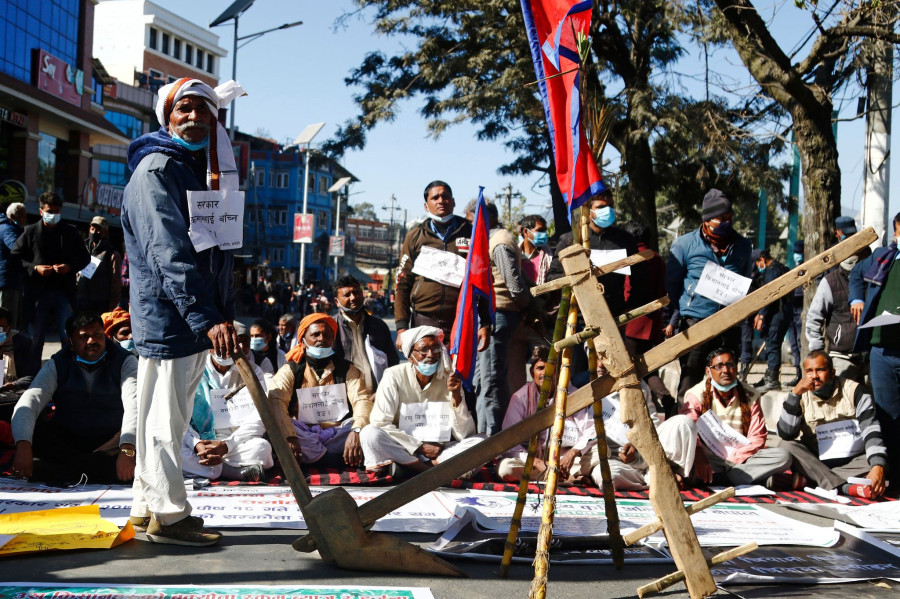Editorial
Broken promises
Farmers have become disillusioned because of debts and policy corruption.
As 2020 comes to an end, the government has repeated its promise to get all defaulting sugar mills to pay the money they owe to sugarcane farmers within 21 days. Hopeful farmers have also called off their indefinite protests after 16 days, following fresh government assurances to settle the payments. The government now must uphold its promise and ensure that the farmers get paid in full, besides addressing other short- and long-term issues faced by the sugarcane industry.
Sugarcane farmers haven’t received more than an estimated Rs800 million from sugar mills for their crops and Rs1 billion in government subsidies. The dues, which go as far back as the fiscal year 2014-15 have become a severe financial burden for the farmers, but the government has repeatedly failed to implement several past agreements it has mediated between the growers and sugar mill owners. It is appalling that farmers struggle to get what is rightfully theirs while defaulting industrialists enjoy impunity.
According to the Ministry of Industry, Commerce and Supplies, Shree Ram Sugar Mill owes farmers Rs260 million, Indira Sugar Mill around Rs40 million, Lumbini Sugar Mill Rs80 million and Annapurna Sugar Mill Rs170 million. On Monday, officials from the ministry said they would take action against the mills, including seizing their properties, halting their transactions and directing local authorities to arrest mill owners, if they fail to clear the dues within the new deadline.
But actions speak louder than words. Almost a year since the first agreement mediated by the government on January 3 to settle all outstanding payments by January 21, authorities and sugar mill owners have duped the farmers and have once again come up with another agreement and deadline to pay the dues. The government must stop colluding with the sugar mill owners who fool farmers and drown them in debt and uncertainties, time and again.
Tussles between sugarcane farmers and sugar mill owners, be it for delayed payment or over the crop’s rate, are not recent developments. In 2011, farmer protests over cane prices in Sarlahi district resulted in a bloody clash with the police forcing local authorities to enforce a daylong curfew. In 2014, a delegation of farmers from Nawalparasi district had put forth their concerns to the then prime minister Sushil Koirala. In 2018, the Home Ministry had also ordered sugar mills to develop a reliable payment plan. The farmer protests in December last year in the capital was only a culmination of years of piling debts, frustration and government apathy to their concerns.
The government cannot continue to alienate thousands of farmers instead of taking stern action to regulate the sugar industry. The number of sugarcane farmers is dropping significantly, and production command areas of the crop have also seen a significant reduction in the past few years. The government’s record also shows that Nepal’s annual output has been dropping steeply, hurting the national coffers despite sugarcane’s national crop status. Isn’t this a clear indication that farmers have become disillusioned because of debts and policy corruption?
There must be concrete action in the coming fortnight to avoid another lapse of the agreement at farmers’ cost. The authorities who have assured action must see that they are not lenient when it comes to mill owners who do not comply. We must guarantee that all dues are clear and non-payments will not recur, and work on an automated system to fix sugarcane prices that are scientific and in the country’s interest.




 14.24°C Kathmandu
14.24°C Kathmandu














